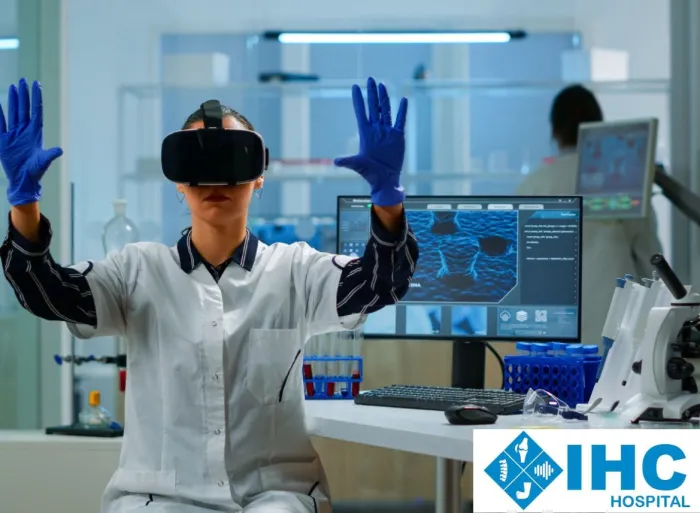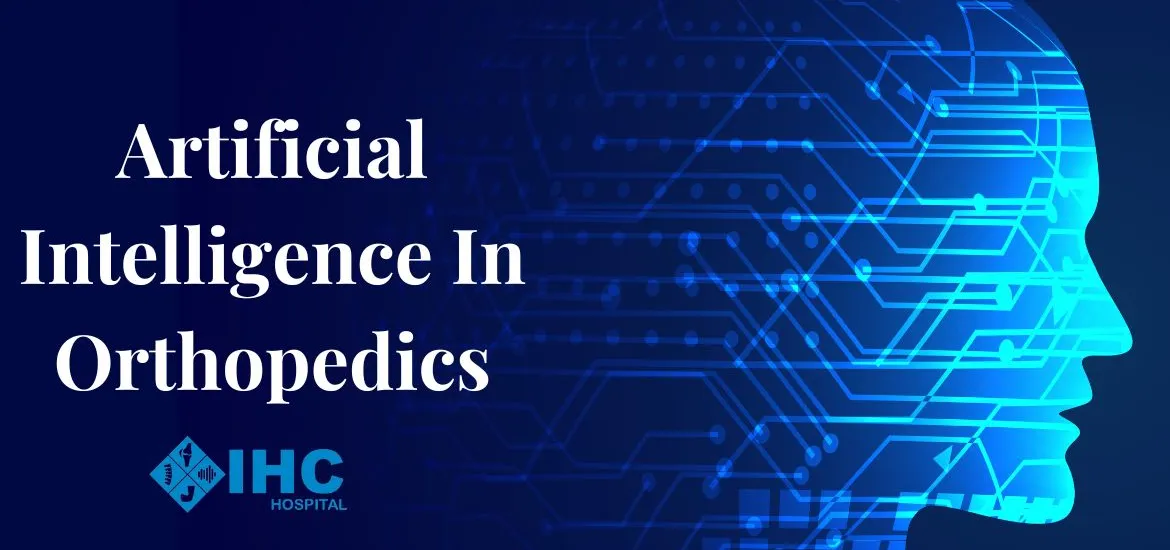The Role of Artificial Intelligence in Orthopedics
In recent years, the integration of artificial intelligence in orthopedics has ushered in a new era of innovation and precision. As advancements in medical technology continue to reshape various fields, orthopedic surgery stands at the forefront of this transformation. From preoperative planning to surgical procedures and postoperative care, the influence of AI is becoming increasingly prevalent. This article delves into the profound impact of artificial intelligence in orthopedics, highlighting its role in enhancing surgical techniques and patient outcomes.
Revolutionizing Orthopedic Surgery: The Power of Artificial Intelligence and Robotics
In an era marked by technological advancements, artificial intelligence (AI) has emerged as a driving force behind innovation across various industries, including medicine. Among its many applications, AI’s role in orthopedic surgery stands out as a transformative force, reshaping traditional approaches and propelling the field into a new era of precision and patient care.
The Role of Artificial Intelligence in Orthopedic Surgery
Preoperative Planning and Diagnosis:
AI-powered imaging and diagnostic tools have become invaluable assets to orthopedic surgeons, revolutionizing preoperative planning. By harnessing AI algorithms, medical professionals gain an unprecedented level of insight into patients’ conditions. These algorithms can meticulously analyze medical images—such as X-rays, CT scans, and MRIs—to identify fractures, abnormalities, and potential complications. This data-driven approach empowers surgeons to devise personalized treatment strategies that optimize patient outcomes.
Surgical Assistance:
The integration of AI-guided surgical robots has elevated the art of surgery. These robotic systems function as skilled assistants, aiding surgeons during complex orthopedic procedures. By enhancing precision and reducing the margin for error, AI-driven surgical tools contribute to superior outcomes for patients. Examples include robotic systems that assist in joint replacements and spinal surgeries, showcasing the synergistic collaboration between human expertise and AI technology.
Patient-Specific Implants and Prosthetics:
AI algorithms have redefined the landscape of patient-specific implants and prosthetics. By assimilating data from medical images and patient history, AI-driven processes fabricate implants tailored to individual anatomies. This customization not only improves functionality but also minimizes postoperative complications, illustrating AI’s potential to enhance patient well-being and recovery.
The Use of Artificial Intelligence in the Medical Field
Disease Detection and Diagnosis:
AI’s impact extends beyond the operating room into disease detection and diagnosis. Its ability to swiftly analyze vast datasets has proven pivotal in early disease detection and precise diagnosis across medical specialties. Radiology, pathology, and dermatology benefit from AI applications that expedite accurate patient assessments, allowing for prompt and targeted interventions.
Drug Discovery and Development:
The fusion of AI and drug discovery has ushered in a new era of pharmaceutical innovation. By sifting through massive datasets, AI algorithms facilitate drug discovery, predict interactions, and optimize molecular structures. This accelerated process has led to the development of more efficient therapies, expediting the translation of scientific research into tangible treatments.
Personalized Treatment and Patient Care:
AI-driven algorithms have revolutionized treatment paradigms by tailoring care to individual patients. Data-driven insights allow for the creation of personalized treatment plans that improve efficacy and reduce adverse effects. Additionally, AI-powered virtual health assistants enhance patient engagement and support, fostering a comprehensive and patient-centric healthcare experience.

The Future of Robotics in Orthopedics
Advanced Robotic-Assisted Surgeries:
The future of orthopedic surgery embraces advanced robotic-assisted procedures. From minimally invasive interventions to complex joint replacements, robotic technologies are set to redefine surgical approaches. The tantalizing prospect of fully autonomous robotic surgeries is on the horizon, albeit accompanied by challenges that demand innovative solutions.
Rehabilitation and Postoperative Care:
Beyond the operating theater, robotics continue to play a pivotal role in rehabilitation and postoperative care. AI-guided exercises and patient monitoring enable tailored rehabilitation programs that expedite recovery. Wearable robotics and exoskeletons offer mobility support, empowering patients on their journey to regain functionality and independence.
Telemedicine and Remote Surgery:
The convergence of robotics and AI has extended surgical boundaries to remote environments. Telemedicine, facilitated by robotic systems and AI technology, enables surgeons to operate on patients from a distance. While this presents numerous benefits, ethical considerations loom large, sparking conversations about patient safety and the future of surgical practice.
Enhancing Preoperative Planning
Artificial intelligence has revolutionized preoperative planning in orthopedics. Utilizing sophisticated algorithms and machine learning, AI can analyze complex medical imaging data such as X-rays, CT scans, and MRIs. This enables orthopedic surgeons to obtain precise insights into a patient’s condition, identify potential complications, and tailor surgical strategies accordingly. The integration of AI-driven imaging tools streamlines the decision-making process, contributing to more accurate diagnoses and personalized treatment plans.
Precision in Surgical Procedures
The application of AI in orthopedic surgery is a game-changer. Surgeons now have access to AI-assisted robotic systems that enhance precision and reduce human error during procedures. These robotic systems can perform intricate tasks with unparalleled accuracy, resulting in improved outcomes for patients. Whether it’s joint replacements, spinal surgeries, or fracture repairs, AI-powered robotic assistance is reshaping the landscape of orthopedic surgery.
Postoperative Care and Rehabilitation
Beyond the operating room, artificial intelligence continues to play a pivotal role in postoperative care and rehabilitation. AI-driven monitoring systems track patients’ progress, ensuring timely interventions and minimizing complications. Moreover, AI-powered rehabilitation programs offer personalized exercises and therapies, promoting efficient recovery and improved mobility. This holistic approach to patient care demonstrates the potential of AI to revolutionize the entire orthopedic treatment process.
FAQs About Artificial Intelligence in Orthopedics
What is artificial intelligence’s role in orthopedic surgery?
Artificial intelligence in orthopedics enhances preoperative planning, assists in surgical procedures, and contributes to postoperative care
How does AI improve surgical precision?
AI-driven robotic systems assist surgeons in performing intricate tasks with unmatched accuracy, minimizing errors during procedures.
Can AI benefit postoperative rehabilitation?
Yes, AI-powered monitoring and rehabilitation programs tailor care to individual patients, promoting efficient recovery.
The Future Landscape
The future of orthopedics holds exciting possibilities with the continued integration of artificial intelligence. As technology evolves, we can anticipate further advancements in surgical techniques, diagnostic accuracy, and patient-centered care. With ongoing research and innovation, the collaboration between AI and orthopedics is poised to reshape the field, providing patients with safer, more effective, and personalized treatment options.
Conclusion: A Future of Enhanced Care and Innovation
In the ever-evolving landscape of orthopedic surgery, artificial intelligence and robotics emerge as catalysts for transformation. The integration of AI-driven preoperative planning, surgical assistance, and patient-specific interventions enhances surgical precision and patient outcomes. Moreover, AI’s far-reaching influence across disease detection, drug development, and personalized treatment underscores its role in revolutionizing the entire medical field. As the future unfolds, the collaborative potential of human expertise and AI-driven technologies promises to reshape orthopedics, ushering in a new era of enhanced patient care, improved surgical outcomes, and innovative medical advancements.













